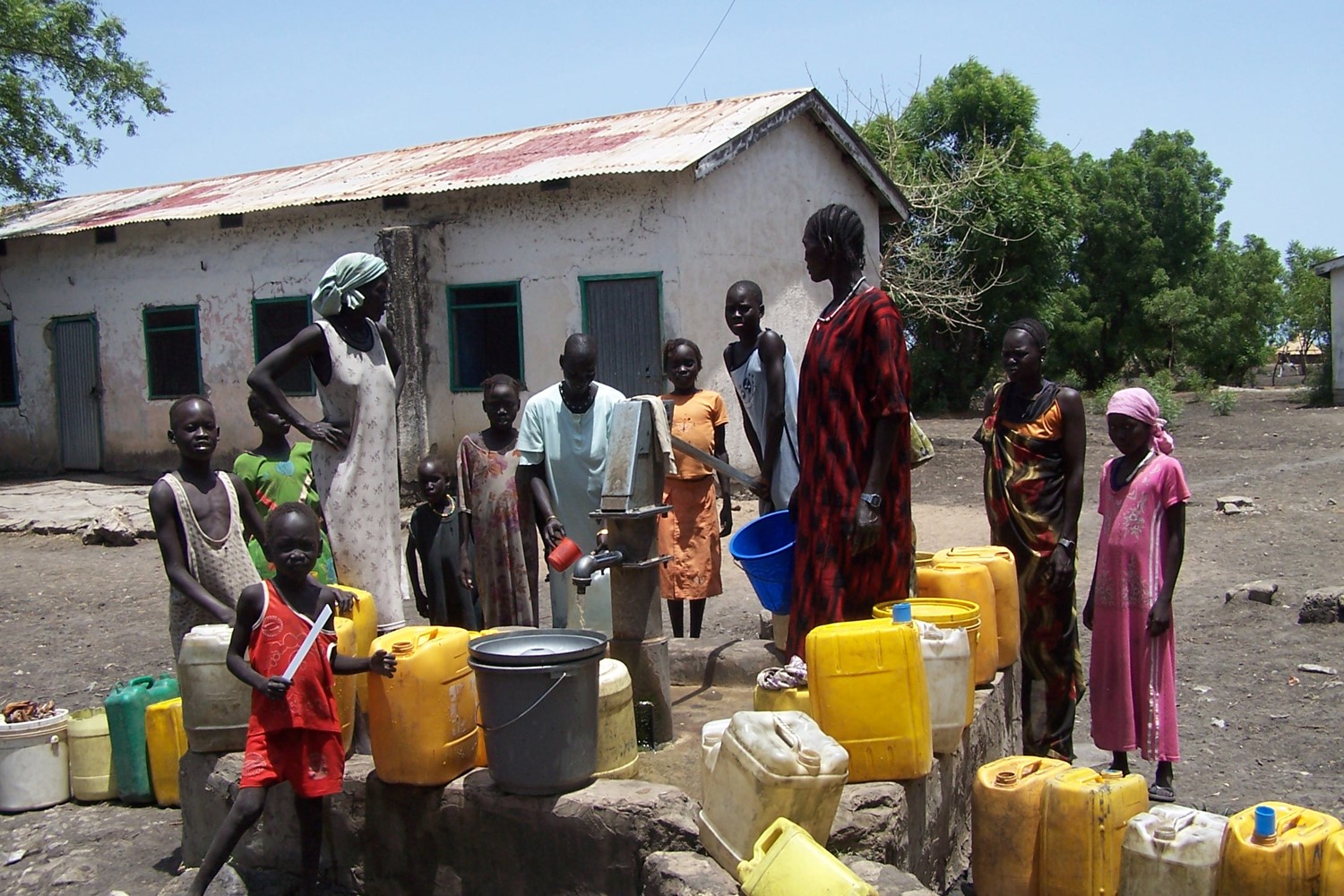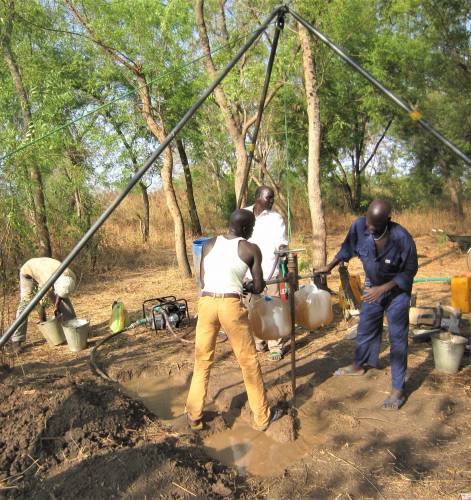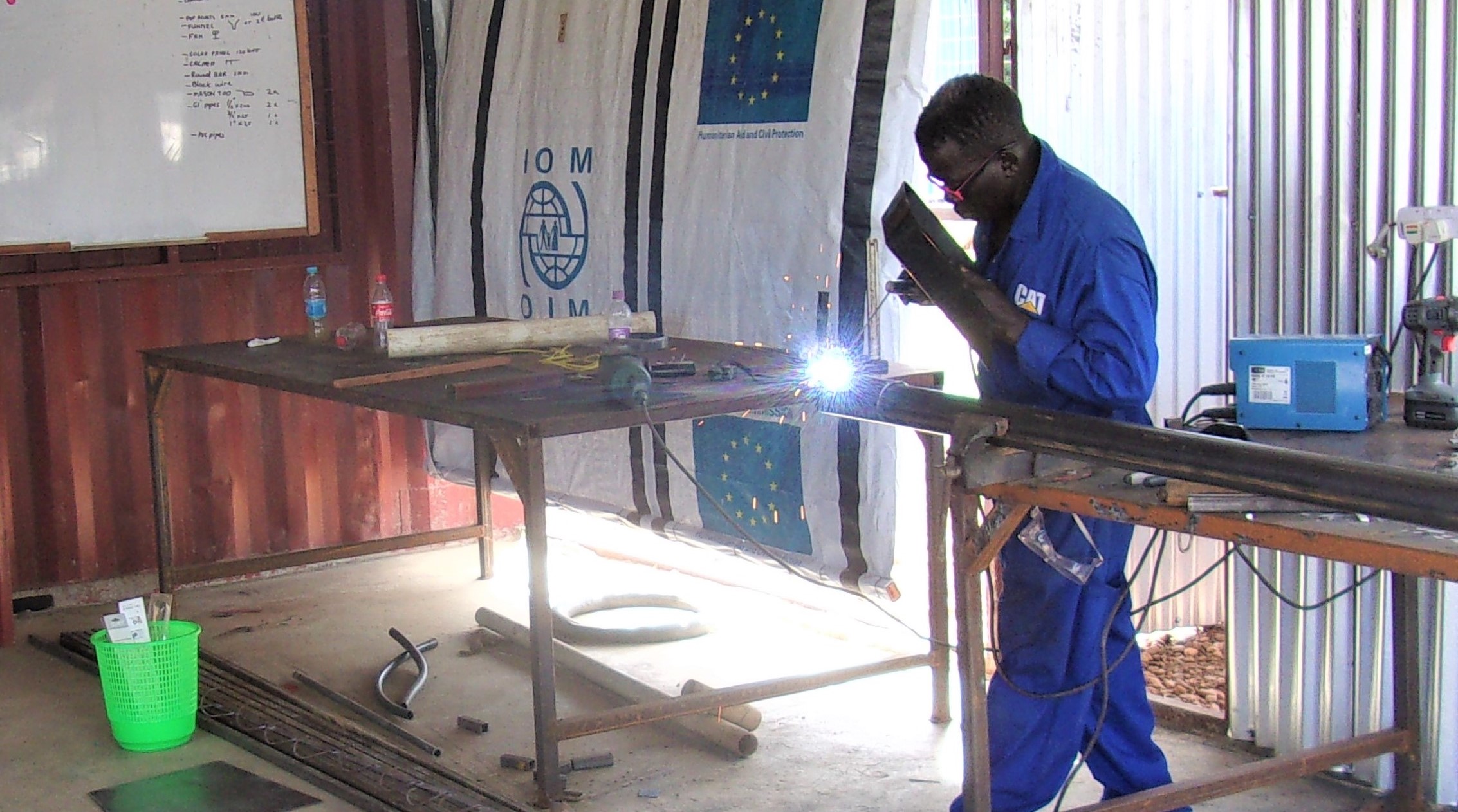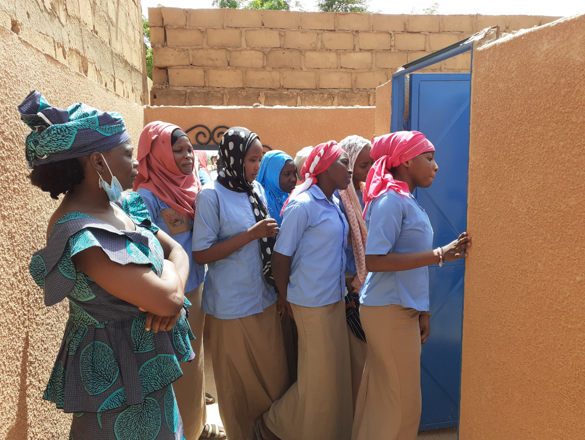By Jim McGill | Mission Co-worker, Niger and South Sudan
“As the humanitarian crisis in South Sudan enters its eighth year, approximately two-thirds of the population need some form of humanitarian assistance”, of whom over 5.8 million persons have needs for more water and better sanitation and hygiene.[i] As the world celebrates World Water Day on March 22, the Presbyterian Hunger Program (PHP) is actively engaged in providing and supporting foundational ways of improving access to water within some of the most destitute areas of the world, including South Sudan.
Having access to water in South Sudan is defined as having a handpump less than 1 kilometer (roughly 2/3 of a mile) from the house, and less than 250 people using that handpump. Translated, this means that if your wife and daughters spend less than 45 minutes to bring home 20 liters (5 gallons) of water, you are considered to have access to water. Twenty litres of water per person per day is a minimum requirement for people in emergencies, but it is also the guideline for defining if a person has access to water at their own home. It is therefore easy to see that families considered to have access to water most often do not have adequate water for their needs.
Access to water may become a driver of conflict as increasing numbers attempt to access an insufficient number of improved water sources. As the number of people living in urban and peri-urban regions increases, so will the demand on sustainable WASH (WAter, Sanitation, and Hygiene) infrastructure at the community and institution level in these areas. Without adequate WASH the potential presence of water-borne diseases may impact the health of the local people.[ii]

SMART Centre Training Class with Director General of Rural Water Supply and Sanitation Peter Mahal (with tie – centre of the photo). Photo by Jim McGill.
PHP is improving access to WASH in South Sudan through supporting the SMART Training Centre (Simple, Market-based, Affordable, Repairable Technologies) that was recently established by the Presbyterian Relief and Development Agency (PRDA) to implement WASH development programs. A driving goal of the SMART Centre is to train local metalworkers and persons who have been involved in water supply to be able to build up businesses and form a local private sector for the provision of improved WASH products and services. With time, these local professionals will be able to begin addressing community needs as well as mitigate many of the threats to the livelihood of the community.
One of these local professionals is Mr. Francis Duku, a welder with a small workshop in Rock City, a high-density residential area of Juba. Mr. Duku has made his living fabricating gates and window frames, repairing bicycles, wheelbarrows, and other small repairs. Mr. Duku expressed an interest in adding water pumps and manual drilling equipment to the products that he fabricates, and after having recognized his pride in producing items with the highest quality, he was chosen for training at the SMART Centre. Mr. Duku now not only installs rainwater recharge wells and builds handpumps for his customers, he also trains other local fabricators to make low-cost WASH products made from locally available materials. Most importantly, local villagers are able improve their own access to WASH as they are able to afford the items that Mr. Duku and those he trains produce.
PHP is supporting trainings of the SMART Centre specifically with the ‘Improved WASH for Pochalla’ program. Village Well Teams made of family members from Pochalla, South Sudan are trained to manually drill wells that will be family owned and family managed. Simple manual drilling methods allow these Teams to drill wells at family compounds, which provides the family with adequate water at their homes. With more water available for the family, sanitation and hygiene improves, and water is available to grow gardens throughout the year, increasing their food supply and income. As the family owns the well, they manage the pump themselves, and do not wait for communal discussions and decisions as to how pumps will be repaired. Individuals gain invaluable skills when they work together in providing water for each other.
A second program that PHP is supporting is a WASH in Schools (WinS) program to improve the sanitation and hygiene environment for the children in school, as well as to provide a program to help keep girls in school during their menses. According to the World Bank, South Sudan has the lowest primary school graduation rate globally at 37.37%. The Presbyterian Church of South Sudan (PCOSS) is the proprietor of several primary schools within Juba and has a goal of reaching a 100% graduating rate. PHP is supporting PRDA in the of drilling wells at three of these schools, which will provide safe water for drinking, but also provide water for improving hygiene and sanitation – specifically allowing girls to be able to take care of all of their needs to remain in school.
Although the statistics of inadequate access to clean water and improved sanitation and hygiene facilities in South Sudan is overwhelming, PHP is taking the steps that will help keep children healthy in school and keep individual families away from crises. Experiences gained through working with these replicable programs can be scaled up, allowing the people of South Sudan to begin to break the cycles of violence and hunger within their communities.
[i] https://gho.unocha.org/south-sudan
[ii] Global Humanitarian Overview 2021. https://gho.unocha.org/
The work of the Presbyterian Hunger Program is possible thanks to your gifts to One Great Hour of Sharing.



